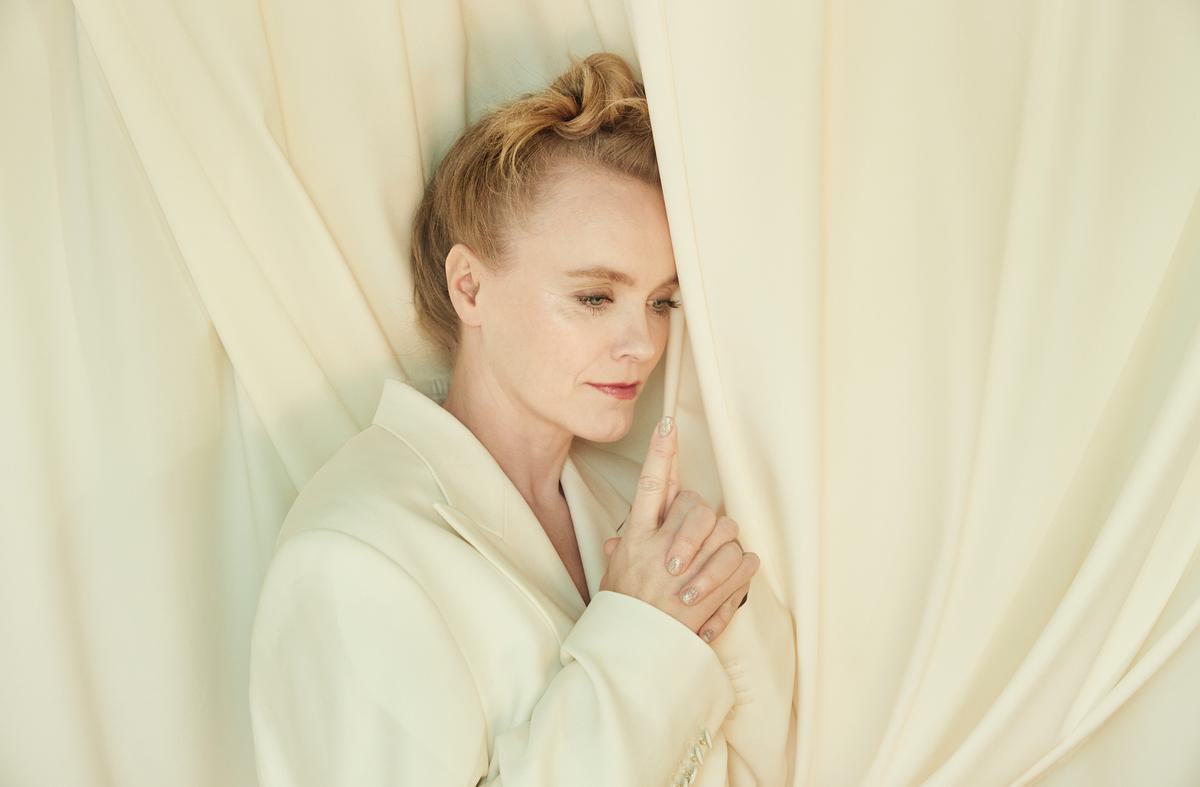
Ane Brun's Personal Best
In the 20 years since her debut, Ane Brun has never lost the searching heart of her music, always seeking out new ways to express herself. She talks to Alan Pedder about highlights from the journey.
Ane Brun sees the first and second decades of her career in dramatically different colours, and it’s the brighter end of the spectrum that shades her new retrospective, Songs 2013–2023.
Although those years have been marked by hardship – a second serious flare of the lupus she was first diagnosed with aged 27, heartbreak, sleeplessness, and her father’s death in 2016 – career-wise, they have been so much more rewarding on a personal level.
“There’s a feeling of lightness in the work that I didn’t feel in those first 10 years,” she explains. “I was so serious about the music, but I also had so many conflicting feelings around the idea of being an artist, of being famous, and all that stuff. After 2013, I came into a different space where I let go of a lot of shit and got back in touch with this actually quite cheerful girl that I am, and that I always was until my mid-twenties.”
Looking back, she sees that time of getting back on her feet after weeks of being in the hospital as something of an epiphany. “I think my head had been in the sand a bit and I had to pull myself up again,” she explains. “It was like, okay, here’s the bottom. Now I have to change.”
Armed with a new perspective, new tools, and new ways of dealing with things, she felt a powerful shift in the energy she was bringing to productions and songwriting. A much braver and more playful Brun emerged on 2015’s When I’m Free, with its neon colours and arrangements emboldened by unexpected influences. Breaking a period of writer’s block, her two 2020 albums After the Great Storm and How Beauty Holds the Hand of Sorrow inevitably touched on the grief she had been swimming in after losing her dad, but there was warmth and colour and surprises there too.
After clearing the decks this year with a series of retrospectives – the already-released covers compilation Portrayals and a forthcoming rarities collection – Brun will turn her focus to completing a new album to be released in 2024. She started writing for the record last year and things are going well. There’s a first taste of it already, with new song “Hand in the Fire” included on Songs 2013–2023.
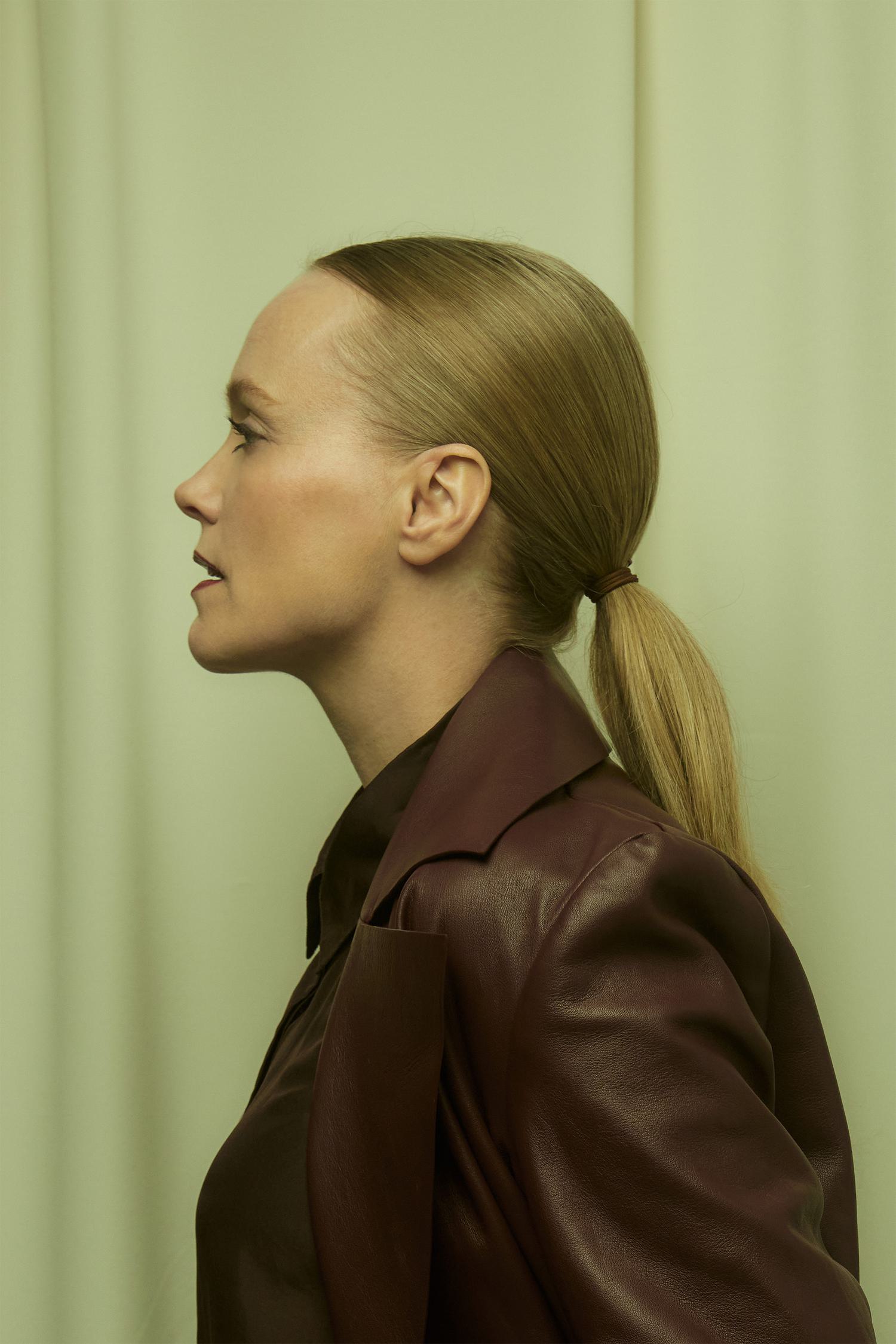
Collaborating again with Swedish synth wizard Samuel Starck (see also “Take Hold of Me”), Brun says the song comes out of a realisation that even as we grow older there are still things that keep us in our place, in a way. She cites the infamous Eartha Kitt garden interview as inspiration, provoking questions about compromise like ‘Why am I not where I want to be?’ and ‘Why do I not get there?’
“Even though I’m very free and I feel like I’m strong and independent and make a lot of choices, outside of my own bubble I’m still a piece of relationships and community and everything,” she says. “Maybe it would be a lonely life otherwise, maybe not. It’s a flock mentality thing. Sometimes I don’t even know what it is that I want to do that I don’t do, but this song is just me just exploring that feeling. Like, am I truly free? Am I doing exactly what I want? Do I dare to put my hand in the fire when I have to?”
In tackling the big questions Brun has always centered beauty and hope, as though a hardwired optimism runs through the skeletons of her songs. Even when there’s been little to be joyful about, she leaves acorns of acceptance to guide the way back. “I still go to bed at night looking forward to the coffee in the morning,” she says, completely sincerely. “I still feel that curiosity about what’s going happen in my life the next day and the day after that. And it’s kind of the same with the music. I always wonder what’s going to come out of me next.”
No five songs can be completely representative of a catalogue spanning two decades, but Brun's choices for her Personal Best all represent important milestones in her journey, from the globetrotting hit "To Let Myself Go" to "Fingerprints", the spine-tingling seven-minute centrepiece of After the Great Storm.
"Fingerprints" (2020)
ANE BRUN: This song came from a co-writing session with Martin Hederos. It’s not something I had done much before, creating with someone else in the same room at the same time. It was a very vulnerable situation for me. I’m better at it now but the first times I tried it I felt like I was exposing so much of myself. It’s funny, because even though English is not my first language, it’s the one I work in mostly and sometimes weird or very vulnerable things come out from my subconscious. In a way, I think singing in English can make what comes out even more honest than singing in Swedish or Norwegian.
Lyrics-wise, this is a song about grief and missing people who have passed. Losing my father was the first time that I had lost someone very close to me, and it’s been quite interesting to see what happens when someone so fundamental to your life is no longer there. The grief and the longing for that person is somehow always a way of reconnecting with them. I never would have thought that the missing part would have any positive associations, but at least for me, when I start missing him and I’m going into that room in my mind, it feels like he becomes more real. As if through that connection he becomes a three-dimensional person again. I start remembering his hands and his hugs and his voice, you know? And when I’m not actively missing him, it’s because he feels very one-dimensional.
“Fingerprints” is a way of opening up to him, of reconnecting, and that’s the next best thing to him not being gone. I had these weird dreams for about two years after he passed. Dreams in which I would meet him in different places, strange places where he just showed up.
Often the dream would be set in a big warehouse or something. I’d hear these strange sounds and then follow them to the source, and all of a sudden he would just be sitting there. I’d be like, ‘What are you doing here? Why aren’t you with us?’ but he wouldn’t be able to explain it. He’d just say something like, ‘No, sorry.’ I had so many of those dreams, and it’s interesting that those dreams kind of stopped around the same time that I accepted he was gone. It took me that long to know in my soul that he was gone and that he wasn’t coming back. There was a big delay there.
There’s a moment in the song that I love so much and that always makes me very emotional. It’s that part after the breakdown where the band starts up again. There’s a little window there, before the energy comes back in and the drums start up again, where I feel that the opening and connection I’m singing about is actually happening in that moment. I feel that I connect with him somehow, within me, and for a few seconds it’s like he’s right there. I remember I had that feeling in the recording studio as well, and it still happens live almost every time. It’s so organic with the band. It’s like a journey that we go through together, and I love it.
In terms of production, it’s inspired by James Blake, especially the songs “Timeless” and “Radio Silence”. The beats are there but they don’t take up all the space. There’s still a lot of air for other things. I love the little siren sound in there that Samuel Starck came up with. It’s almost like a lighthouse, in a way. I think it turned out so beautifully and I really am so happy with it.
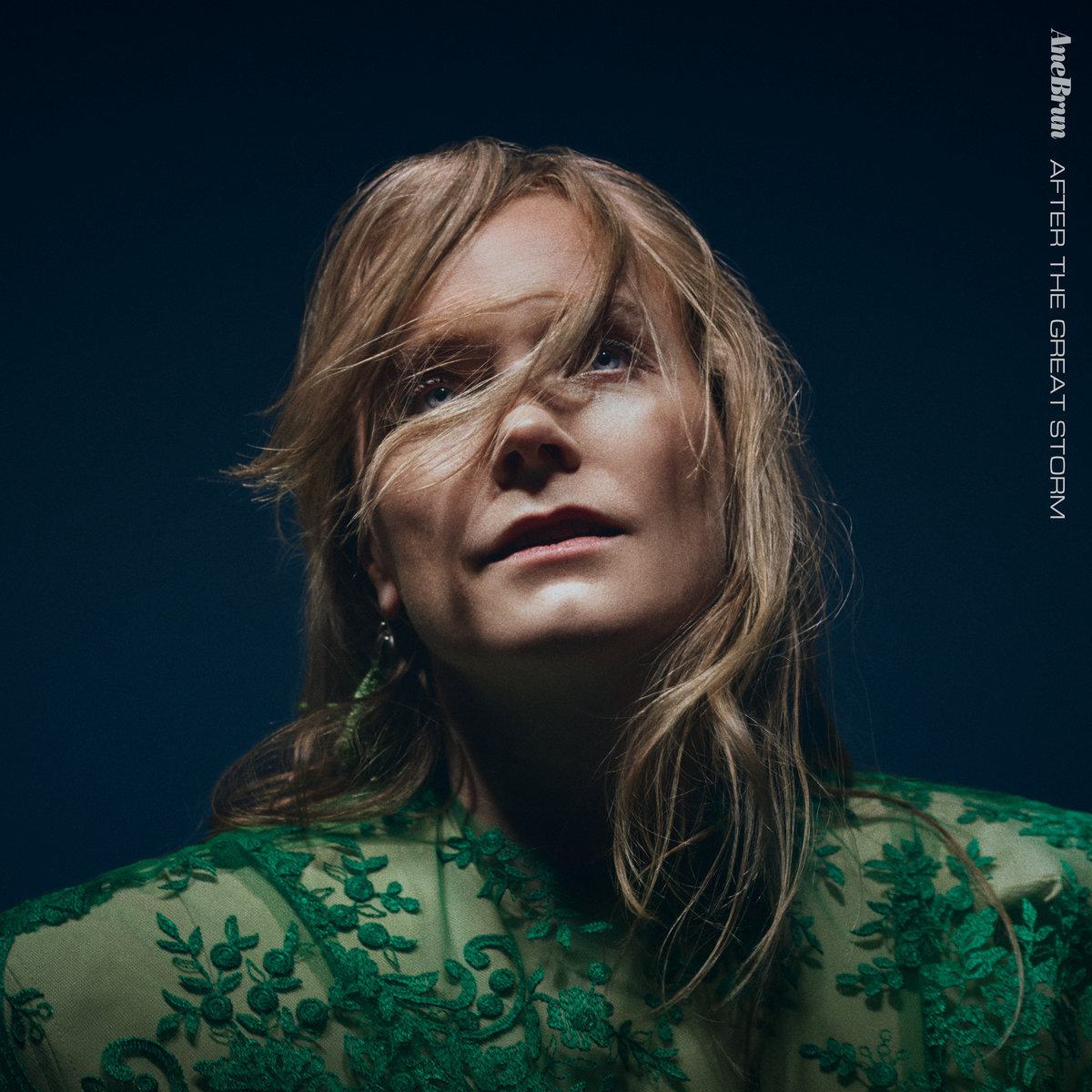
"The Fight Song" (2005)
ANE BRUN: I wrote this song while I was in hospital in 2003. I’d had my first serious flare of lupus and it was the first time in my life that I’d ever been sick for real. I was terrified and I think quite traumatised too, as a 27-year-old.
I think the first symptoms came in the summer. I think it was July when the fever started and I started to losing hair and getting really skinny. From one day to the next, for about 6 weeks, I was lying in bed with fever. Eventually I went to the hospital but they never found out what it was. In the end, I was sent to Norway, back to my parents, and just a few days later I was so sick that I had to go the hospital in Trondheim and I ended up staying there for at least a month.
At the time, I had a friend in Trondheim who had a guitar and I asked if I could borrow it. This was maybe the last week I was in the hospital. I remember writing this song on that guitar and it was a very special writing process because I was so caught up in the moment and in all the feelings that I’d had. I was so terrified, actually kind of paralysed with fear I think. There was so much about this experience that was new to me. Like, I couldn’t sleep because of the medication I was on.
I started writing this song as a way to fight that anxiety, in a way, and in my head that anxiety became a wild horse that I had to tame because it had so much control over me. Going into that space in my head, there was so much emotion. I don’t think I’d ever had such a vivid experience with writing a song before. I’d never gone into the creating process so deeply before. It was almost violent, because I was so angry with this horse. At one point I had to actually stop writing the song because I was like, ‘Oh shit, this is getting scary,’ because I was just so angry.
But in that moment I decided that there had to be some kind of reconciliation there. I couldn’t just kill that horse. I feel like I always have a temptation in my songs to want to find a way to wrap things up, with forgiveness and hope. I never feel good about leaving something flying the darkness, somehow.
I remember that after I got healthy again and A Temporary Dive came out, it was still always such a very, very vulnerable song to play. A lot of people thought it was about a violent relationship or about really violent sex. I remember some guys started laughing at a show once. And I think it’s funny, because I’m not sure I would ever have written the song this way in Norwegian.
BEST FIT: Why is that? Because you would be too self-conscious?
I think it would be too in-your-face or too obvious, or that the imagery maybe wouldn’t work. I’m not sure because I haven’t tried it. It’s interesting with language, because when I play my English songs in the UK or in America, I feel like I am singing straight to the audience. Even though I haven’t necessarily done that deal with the people in the room, in my body it feels like, ‘Okay, shit, this is their first language, it goes straight in without a filter.’ But I do remember getting really self-conscious playing it in an English-speaking country for the first time. A Temporary Dive was a dark album in general, but I toured it so much, in Europe and America.
You don’t play this song live that much these days, do you?
I think that when you’re at the beginning of your career and you only have one or two albums, you play those songs so much because they’re the only ones you have. So it got to a certain point where I just couldn’t play it anymore, but I’m thinking about maybe bringing it back for the 20th anniversary tour this year because it’s been a while. I think we could do something cool with it with the band. I’m going to see if we can find a way.
Going back to what you said about people mistaking “The Fight Song” for a song about relationships, I think that also goes for some of the other songs you’ve written about your lupus, like “These Days” from It All Starts with One.
Yeah, it’s kind of weird that it’s the same theme that goes through my life, but I guess that’s true for a lot of people. “The Fight Song” is the origin of my whole journey, in a way. I fight it but I need to live with it. For me, I don’t care if people get some different meaning out of my songs. It’s much more important that they actually feel something.
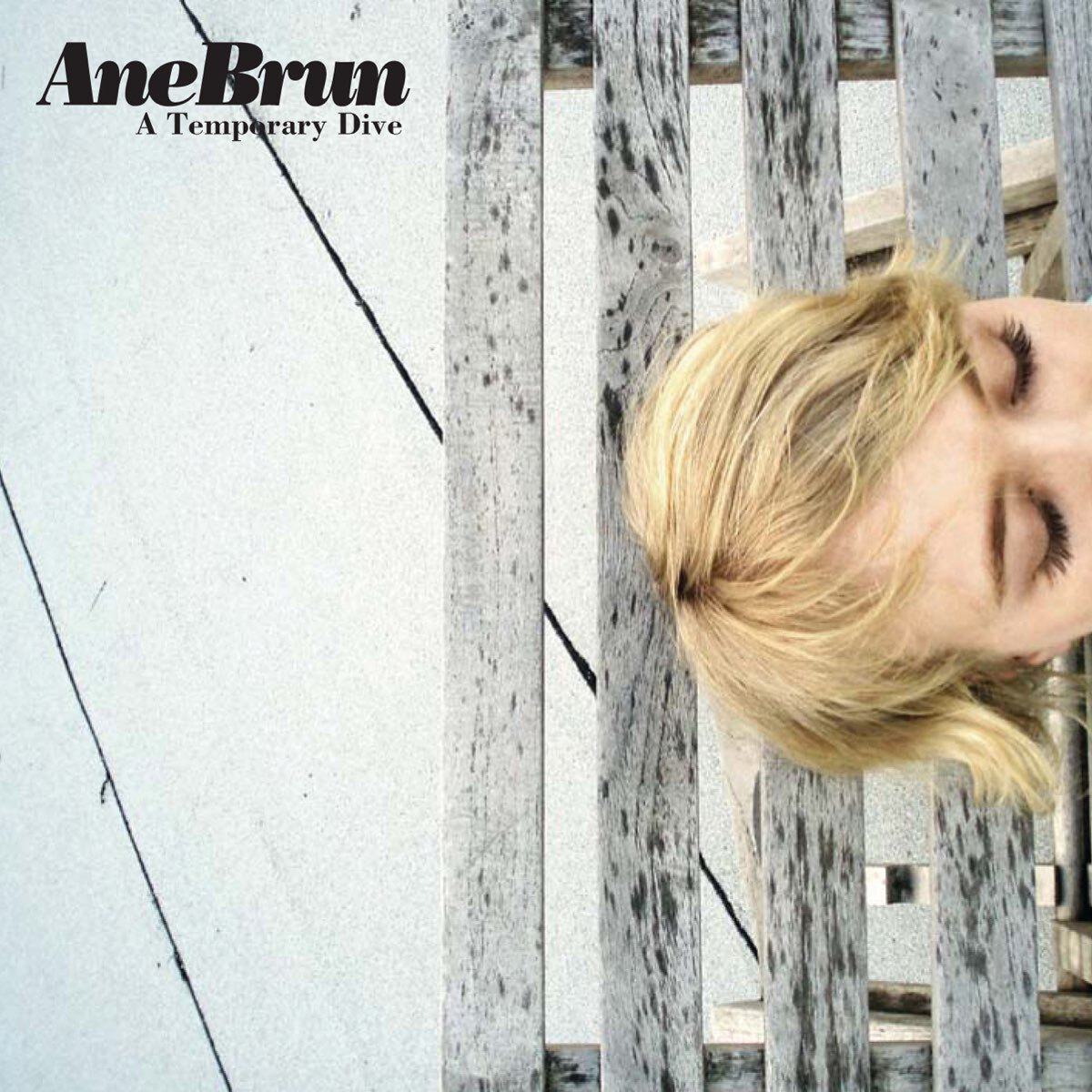
"To Let Myself Go" (2005)
ANE BRUN: It feels so long ago that I wrote this song, which it actually is because I wrote it around 1999 or something. I remember I had this four-track tape recorder that I bought in Bergen, before I moved to Sweden, and made the first recording on that. But, you know, it was really just the verse because it’s a very minimalist song.
I put it to one side, until I was making the second album, A Temporary Dive, with Katharina Nuttall as producer. She was insisting that we do this song even though I thought there was nothing there. She could see that, yes, there was a lot there and that we could bring that out. I think I wrote the instrumental part right in the moment, while making the album.
It’s funny, because I think the feeling that this song is about is something that I’ve always felt, and it’s interesting when you think of it in relation to “Hand in the Fire”. I’ve always seen myself as someone who can’t go back in life. If something happens, I need to move forward. I feel like that’s very true when it comes to my music, because I always feel like I want to go forward, to develop, and to get deeper with myself. I also think it’s true in relationships. For me, if there’s no potential of actually getting deeper with someone, it doesn’t work because I need to be able to do that with someone. That’s just a part of life for me.
“To Let Myself Go” is one of the few songs that I play in every show. Even though it’s so old, it still kind of fits my life. It has such a simple message and that’s why it works so well. The foundation of the song is still relevant. I think it’s a very good example of what a producer can do when they see something in a song that I might not see. In all the years I have been making albums, that stands out as an important learning process. I’m very happy that Katharina insisted on doing this song, and with how she produced it, and I’m very happy that this song exists.
BEST FIT: The song was given a whole new lease of life 10 years later by French DJ The Avener. Tell me more about how that remix happened. Were you surprised by how successful it became?
It’s funny, because there was no process. I think they just contacted us and said they’d done this remix and asked if they could release it. There had been other remixes of “To Let Myself Go” before that, and now there are many that have been done, but I think The Avener version is the most successful one. It’s essentially just my song but with beats but it’s very cool. I love it. It gets played a lot. It’s very popular in Turkey, for instance, and in other countries that I’ve never even played in.
I love dance music, so it’s not hard for me to say yes to those kinds of collaborations. I also feel quite curious about making more of that kind of music myself. I’ve been thinking that maybe I should do some dance remakes of some of my old songs. It could be fun!

"You Lit My Fire" (2015)
ANE BRUN: I picked this song because it’s about something outside of me, in a way. Usually, if I want to write about something that’s going on in the world, that’s going on in society, I have to write it in a moment when I have a lot of feelings about it. Otherwise it doesn’t work.
I wrote this song during an election period in Sweden when there was a lot of anti-feminist talk, about how we don’t need more feminism and comments like that. It just made me so provoked. I often think that women don’t get enough credit for everything that they do. We’ve created this society that gives women all these possibilities, and we’re so proud of the fact that women in Sweden are free to do what they want, but it’s almost like we forget that a lot of women sacrificed so much to create this society that we live in.
I wanted to make a song that was kind of like an homage to these women, because the rights we have now probably wouldn’t have been won if they hadn’t made those sacrifices. Because, let’s face it, most men don’t walk the streets for women’s rights. Women march for everyone’s rights but men don’t, and I think that’s strange.
I feel like, even now, when a lot of boys are falling behind in school... of course we should talk about boys' rights, but it feels like men are expecting women to take care of that. Of course, there are some fantastic men out there who are fighting with women, but sometimes it seems like they are just complaining. It’s almost like there’s an undertone of blaming the women’s movement and feminism for things like young boys falling behind in school, while women are like, ‘Can you please just come in and fight a little bit?’ That’s the feeling I get anyway.
BEST FIT: Were you thinking of any women in particular while you were writing it?
I think I was just thinking of everyone from the big names from 50 or 100 years back to women like my mum and others of her generation who worked so hard to find a balance. If you think about women in the ‘80s, they were supposed to be very independent but at the same time they had all this pressure to be the best housewives, and working double because of that. Also the pressure to be pretty at the same time.
Women of my mum’s generation had it tough, I think. They came from parents who had grown up in such a different society, and it’s really amazing how they carried that weight. My generation, we have our struggles, but it’s totally different.
We’ve talked a bit before about how inspired you are by the younger generations of women coming up.
Yeah, it’s just so refreshing to see them being so natural in their way of grasping the world and embracing it. When I play with younger female musicians, it almost makes me cry to see them be so sure of themselves and their abilities. I wish I’d had that around me when I was growing up.
It’s weird to think about what we grew up with in the ‘90s. We romanticised a lot of weird stuff, like Pretty Woman and the other very strange films that we watched. I mean, Pretty Woman is a fucked-up movie! I remember for years thinking it was so romantic, but it’s not. And looking back at that Michael Jackson video [“The Way You Make Me Feel”] where he follows that young girl down a back street. So creepy, oh my god.
Anyway, it makes me very, very happy and inspired to play with these talented young women. It just gives me so much energy. I can get so emotional just talking about it. It’s so amazing to see them being so free. I love that.
Even though you were so provoked when you wrote the song, it’s interesting that the song comes from a place of gratitude rather than confrontation or anger. I think that comes across really nicely in the music video as well.
It’s a celebration, and I think we don’t see much celebration of these women. Even International Women’s Day is very much an angry day. So this song and this video is for all of those women who know themselves how much they have fought. If you feel that you’ve been in that fight, this song is for you. A lot of people have talked about this song through the years and I know that a lot of people feel very empowered by it.
I think this song shows a different side to your voice as well.
Yeah, that was another moment where I tried to do something different. Like, let’s try and sing like Jill Scott and see if I can pull it off!
I do sing along with artists like that all the time and I’ve always done that, so this time I wanted to try and do it when singing one of my own songs.
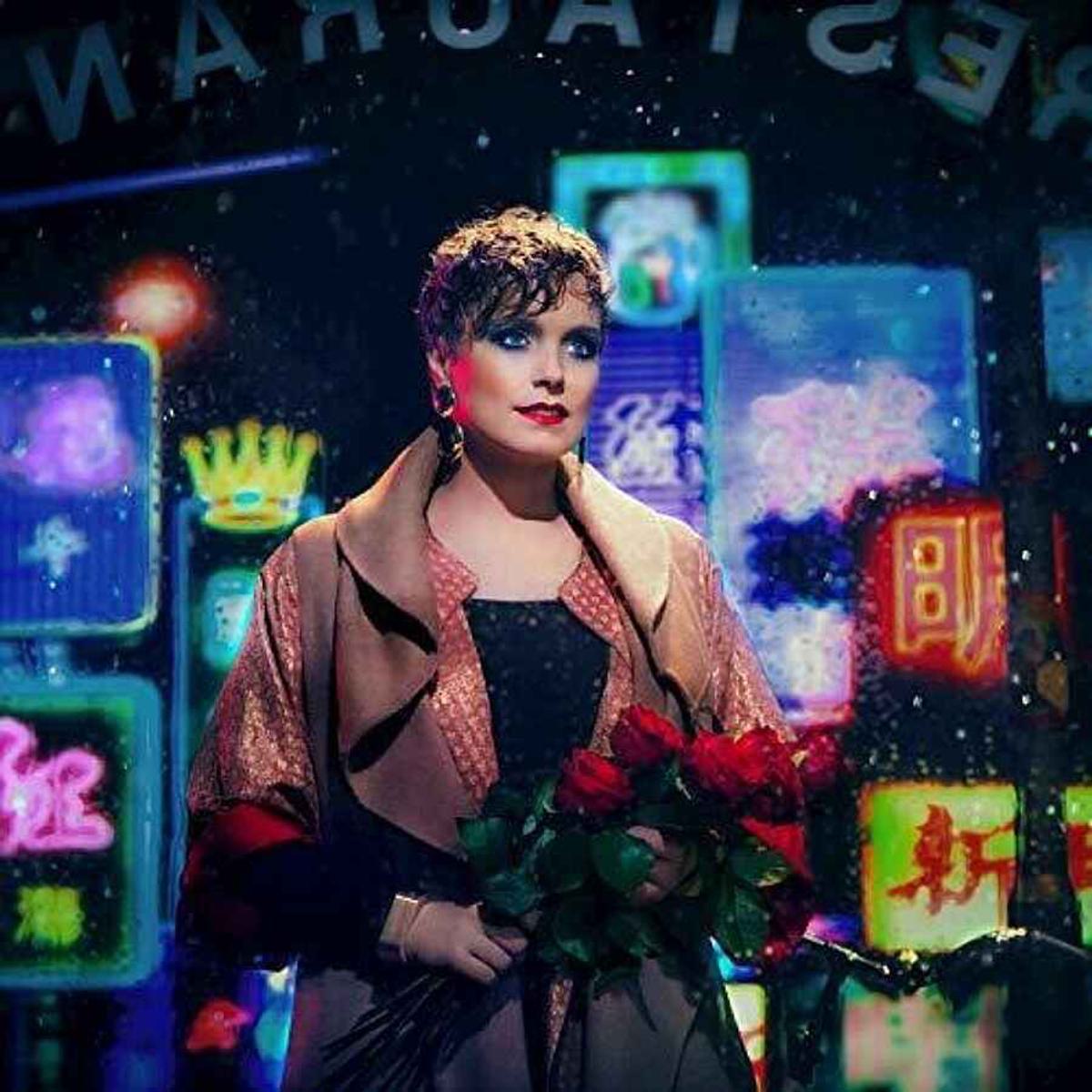
"The Light From One" (2011)
BEST FIT: I know you originally worked on this song with Prash Mistry, otherwise known as Engine-EarZ, and that the version on It All Starts with One is very different from that first version. Can you talk a bit about how it developed?
ANE BRUN: Yeah. Prash contacted me many years ago, I think in 2010, and asked me if I would sing and write the lyrics and melody for a song for his Engine-EarZ Experiment album. I remember doing it in my apartment here in Stockholm with a tiny little stereo microphone, thinking that it would just be the sketch, but they loved it so much that they kept it.
I remember being very, very happy with the lyrics, and I asked him if it would be okay to make a version of my own for It All Starts with One, which came out in 2011, and then the Engine-EarZ Experiment version came out quite a bit later, in 2017. Prash had become this really big time mixer and mastering engineer so I think he didn’t have much time to finish the album. I think his version is very cool.
For my version, I had Martin Hederos, Per Eklund and Ola Hultgren in the studio with me, and Tobias Fröberg on the producer side. But I’ve also recorded it with an orchestra with string parts that Martin wrote, and I think that version is amazing as well. So, absolutely, it’s one of my favourite songs of mine.
Co-written songs like this one can be cool because I think having someone else’s harmonics involved can bring out something new in me. A different flavour or taste. This song is about co-dependency, in a way. If you think about it from a bigger perspective, it’s about how we can take a lot of emotional responsibility for other people. We believe that we can kind of carry their emotions alongside them, to try to help. I guess that’s often something we learn as children, a sort of survival mode belief that you should be able to fix everything,
I know that in relationships I’ve had through the years, there has been a feeling of trying to hold someone up by engaging emotionally so much in their life. You think that it will help, but if someone is really, truly depressed, it’s impossible to do hold them up. You can of course be a comfort to someone, but you cannot carry people’s grief and depression for them. Trying to do that just consumes you.
You get caught up in their undertow, as you sing on another song.
Yeah, this album came out of a very heavy time in my life. A lot of the songs came out of an experience that I’d had where I stepped into that darkness myself again. I got out of it, but too late. I was consumed by it and I think I learned so much from that, because it’s not rational and it’s not possible. I’ve learned through the years that you can be a better support if you aren’t completely swimming in this other person’s life. You can be empathetic and available, but you don’t have to feel everything that they are feeling. That’s what I thought empathy was once, but now I understand that you can relate but you cannot go around adopting people’s feelings because it’s not going to help.
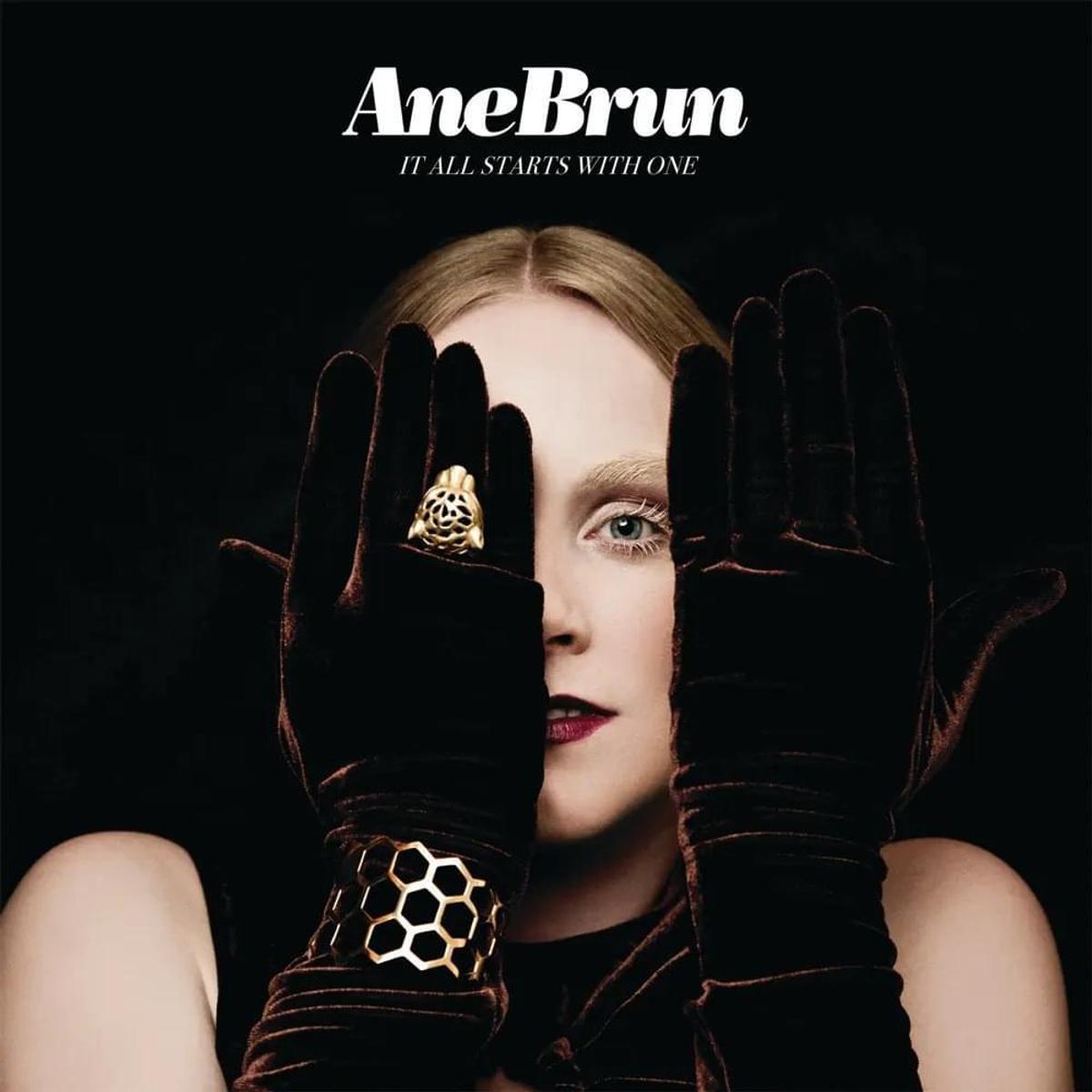
Songs 2013–2023 and Portrayals are out now via Balloon Ranger Recordings. Ane Brun plays Shepherd's Bush Empire on 14 October as part of her 20th Anniversary Tour. Tickets available here.
Get the Best Fit take on the week in music direct to your inbox every Friday

Tunde Adebimpe
Thee Black Boltz

Julien Baker & TORRES
Send A Prayer My Way

Bon Iver
SABLE, fABLE





